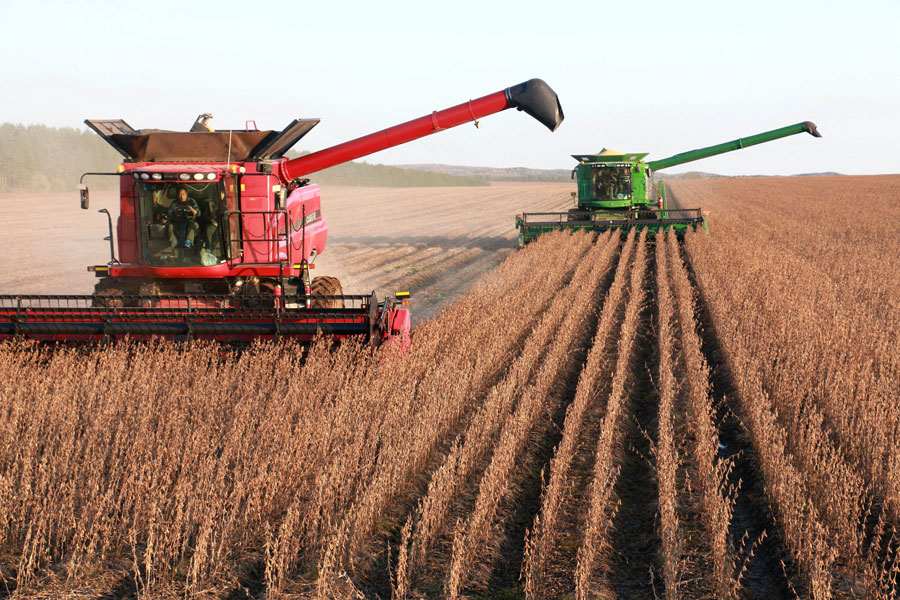Case made for bilateral 'climate-smart' agriculture
By ZHAO HUANXIN in Washington | chinadaily.com.cn | Updated: 2024-05-10 10:44

US-China cooperation on climate-smart agriculture is in the national interests of both countries and the world and should proceed with promoting sustainable agricultural production in water-stressed areas and working together on standards gauging climate impacts of the sector, a group of experts have said.
In The Case for US-China Cooperation on Climate-Smart Agriculture, an analysis two Washington-based think tanks published on Tuesday, the experts noted that growing populations around the world will require more food while climate change and other pressures are limiting agricultural production, including in the US and China.
The article coincided with China's envoy on climate Liu Zhenmin's arrival in Washington for talks with his US counterpart John Podesta.
They met on Wednesday and Thursday for a meeting of the bilateral Working Group on Enhancing Climate Action in the 2020s, aimed at accelerating concrete climate actions this decade, according to a statement by the US State Department.
The American and Chinese experts, convened in March by the Brookings Institution and the Center for Strategic and International Studies (CSIS), discussed areas that pose threats to food security and agricultural interests that they believed the two countries would be willing to jointly address and on which the global community would stand to benefit from US-Chinese cooperation.
The majority of ideas agreed upon by experts concerned climate-smart agriculture, according to the article.
Climate-smart agriculture is a set of agricultural practices and technologies that simultaneously boost productivity, enhance resilience and reduce greenhouse gas emissions, according to a World Bank release.
The world is facing surging food demand as its population is projected to reach 9.7 billion by 2050. That goes along with the fact that today the global agri-food system emits one-third of all emissions, according to the global lender.
A major consensus reached in the CSIS-Brookings-led discussions is for the two countries to promote sustainable agricultural production in water-stressed areas.
The US and China are grappling with similar challenges, testing solutions that could be mutually beneficial and that could benefit agricultural production elsewhere, including food-insecure countries for which water insecurity is set to worsen with climate change, according to the experts.
Another area of consensus was reducing food loss and waste, which would deliver strong climate benefits by reducing emissions of methane and other greenhouse gases from food waste in landfills.
"Exchanges on best practices for approaches to reduce food loss and waste could benefit each country's efforts to achieve both food waste and climate goals. Extending these practices to third countries could have additional benefits for improving global nutrition," the article wrote.
The US-China cooperation on climate-smart agriculture could also fill a glaring gap in global standards of measurement for the climate impacts of agriculture.
There are no globally agreed-upon standards for greenhouse gas emissions from agriculture, nor a board to set such codes, according to the article.
It suggests that cooperation between US and Chinese technical experts could result in formalized, evidence-based standards to which both countries agree.
Agreement on standards by both countries would benefit global trade and global climate change efforts and reduce the risk of "disparate, overlapping standards" that could increase market costs, inhibit trade and confuse efforts to meet global climate goals, the experts wrote.
























